From the practice of Ho Chi Minh City...
In recent times, Ho Chi Minh City has identified science, technology (S&T) and innovation (I&T) as the core foundation for growth, with digital transformation (DCT) as an action strategy. In particular, over the past two decades, Ho Chi Minh City High-Tech Park (SHTP) has played the role of one of the important pillars, not only attracting more than 12 billion USD in investment capital with many large-scale FDI projects of international corporations (Intel, Samsung) to invest in production and research and development, but also taking the lead in piloting digital technology application models in management and operation. SHTP, together with Ho Chi Minh City High-Tech Agricultural Park, is a suitable technology testing environment, creating conditions for technology and DCT solutions to be applied and perfected in real conditions.

The city's innovation ecosystem is built from many different levels, operating flexibly and closely linked together, in which digital transformation is the factor connecting these components. Ho Chi Minh City is also home to a large number of universities and research institutes, which are core resources to promote science and technology, innovation and digital transformation activities. Schools and institutes are proactively adjusting their orientation, prioritizing applied research instead of basic research. The goal is to create technological solutions that can be transferred and applied directly to production, business and urban management practices. Current key research areas are clearly defined, focusing on advanced technologies that directly serve digital transformation, including: artificial intelligence to optimize systems, big data to analyze and support decision-making, and the internet of things to build smart infrastructure.

Ho Chi Minh City pays special attention to promoting cooperation and close linkages between the research sector (universities, research institutes) and the production sector (enterprises). This diverse cooperation aims to maximize the strengths and resources of the parties, with the specific goal of forming technological products with the brand name "made in Ho Chi Minh City". Thereby, this linkage mechanism clearly affirms the pioneering role of the research sector in providing scientific and technological knowledge, contributing to creating a solid foundation and promoting the sustainable development of the city's innovation ecosystem.
Along with the system of universities, research institutes and research-production linkage activities, Ho Chi Minh City has also formed a network of organizations supporting startups and digital enterprises. In the city, there are currently many incubators, nurseries, startup support centers and business acceleration programs implemented by universities, SHTP and private organizations. These units provide infrastructure, consulting services, testing support and investment connections for startups. Some areas of the digital economy such as financial technology, e-commerce, educational technology, digital logistics and medical technology currently have the presence of many businesses operating in the city.
In addition, the city has the participation of venture capital funds and financial support organizations for startups, focusing on models of applying digital technology and data in production, business and management activities. The participation of these organizations in the innovation ecosystem contributes to creating a more favorable environment for businesses to access resources, test technology and develop products. This ensures the connection between research and development activities and creative startups, in line with the development orientation of Ho Chi Minh City according to the issued programs and plans.
In particular, the Ho Chi Minh City Digital Transformation Strategy to 2030 has identified Digital Transformation as a key task, implemented synchronously across the entire state management system, production and business activities and social services. On this basis, Ho Chi Minh City has deployed the Smart City Operations Center and integrated and data-sharing platforms to support analysis, monitoring as well as serving the direction and operation work. At the same time, online public service systems are being expanded according to the roadmap, contributing to standardizing the process of handling administrative procedures and improving access to services for people and businesses.
It can be affirmed that the innovation ecosystem of Ho Chi Minh City has achieved many important results. However, the innovation ecosystem of Ho Chi Minh City is facing challenges in the legal framework and mechanisms: policies are not strong enough to encourage investment in R&D, regulations on testing new technologies, intellectual property and data sharing are still limited... Solving these problems requires synchronous coordination between state management agencies, research organizations and businesses.
...to Vietnam's new development method in the digital age
From the practice of Ho Chi Minh City in science and technology, innovation and digital transformation activities and looking more broadly in the spirit of the Draft Document, I propose some solutions:
Firstly, it is necessary to improve institutions and policies. On the basis of the Law on Science, Technology and Innovation that has been promulgated, it is necessary to continue to improve mechanisms and policies to create a more favorable environment for research, testing and commercialization of new technologies. It is recommended that the Central Government consider a specific mechanism for the "innovation city" model, focusing on attracting talent, increasing investment in R&D and implementing advanced technology testing, supporting capital for innovation enterprises, especially start-up projects and key technology industries, contributing to improving the efficiency of technology application and developing strategic technology groups.
Second, develop infrastructure and ecosystem. It is recommended to prioritize the development of open laboratory systems, data sharing centers and technology testing spaces to facilitate startups and technology enterprises. This infrastructure will be the foundation for forming clusters of key innovation industries (semiconductors, artificial intelligence, biomedical technology, clean energy and new materials). The connection mechanism between universities, research institutes and enterprises needs to be strengthened, promoting technology transfer and enhancing innovation capacity in the private sector and FDI.
Third, human resource development and digital transformation strategy. It is recommended to establish a National Digital Human Resource Training Center at the local level, focusing on developing human resources to serve key technology industries. This center will organize training programs, update digital knowledge and skills according to market practices, and support the development of high-tech experts and engineers to meet the needs of digital transformation in production, urban management, and public services. Focusing on developing high-quality human resources will play a fundamental role in the implementation of innovation programs, increase competitiveness, and promote the formation of key technology industries.
Fourth, perfecting the innovation ecosystem. It is recommended to continue building a synchronous investment mechanism, sharing benefits and transparent technology transfer between research institutes, universities and enterprises. At the same time, it is necessary to increase social investment, improve the capacity of high-quality human resources in key areas, and expand the participation of venture capital funds and private investors. Overall, these orientations aim to build a flexible, open innovation environment, ready to accept risks, promoting the rapid, sustainable, dynamic, integrated and internationally competitive development of the national innovation ecosystem.
Building and developing an innovation ecosystem is not only a goal, but also a new development method for Vietnam in the digital age. For rapid and sustainable development, it is necessary to continue to improve institutions, encourage experimentation and facilitate the application of advanced technology. The results from innovation activities in many localities will be the basis for research, evaluation and replication, contributing to the formation of a knowledge-based economy, a creative society and a modern digital government. Innovation is not only a matter of technology but also the spirit of daring to think, daring to do and daring to make breakthroughs for the development of the country.
Prof. Dr. Nguyen Ky Phung
Head of SHTP Management Board
Source: https://www.sggp.org.vn/hinh-thanh-nen-kinh-te-tri-thuc-xa-hoi-sang-tao-va-chinh-phu-so-hien-dai-post823545.html






![[Photo] Action for the Community tells stories of enduring journeys – both intimate and great, yet quiet and determined](https://vphoto.vietnam.vn/thumb/1200x675/vietnam/resource/IMAGE/2025/11/15/1763179022035_ai-dai-dieu-5828-jpg.webp)

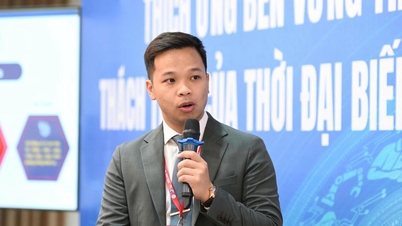



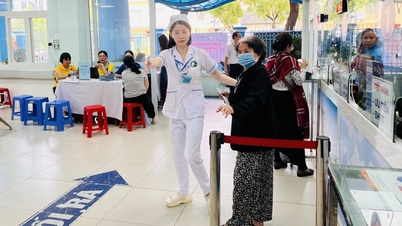

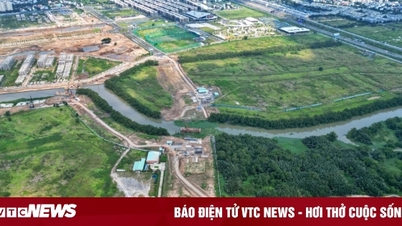




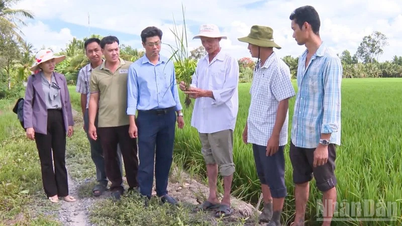



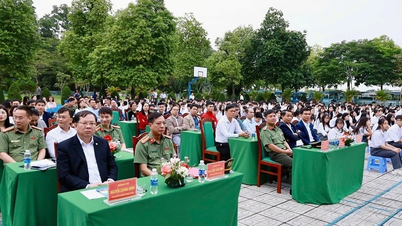

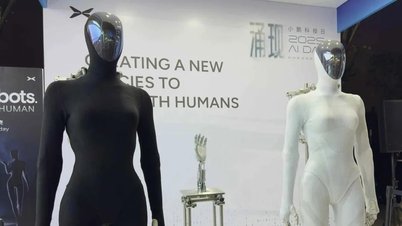





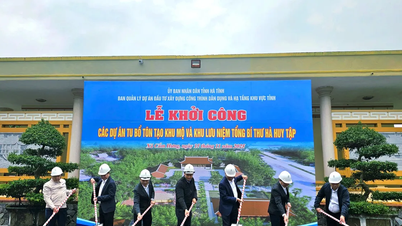
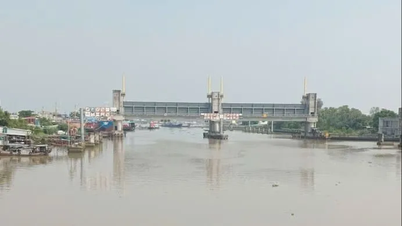













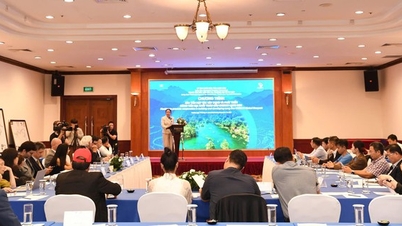






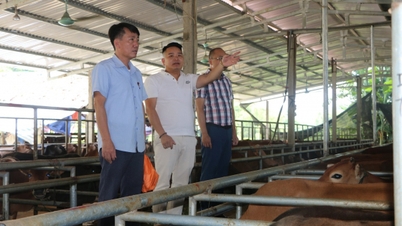


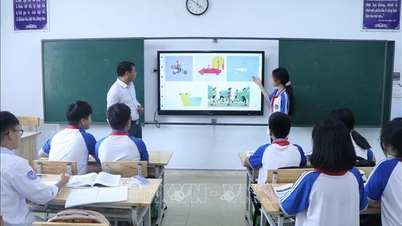

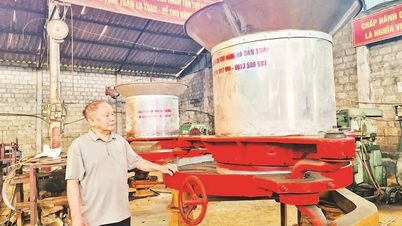
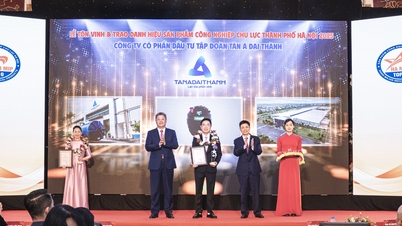
















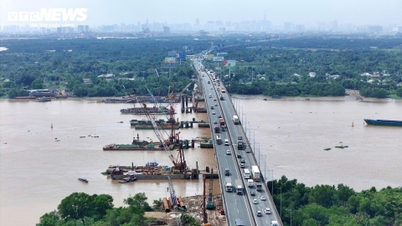









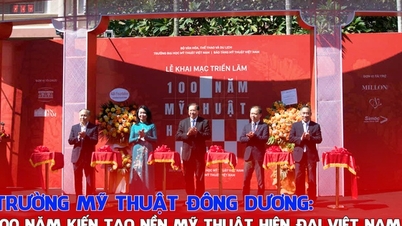




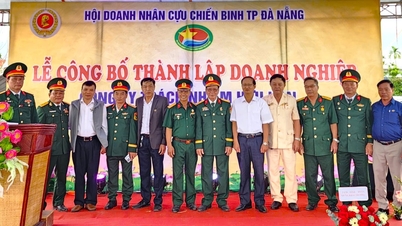
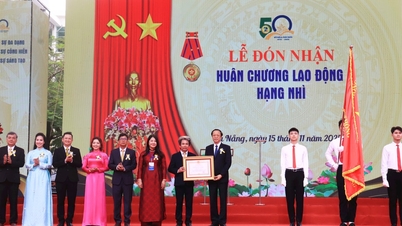

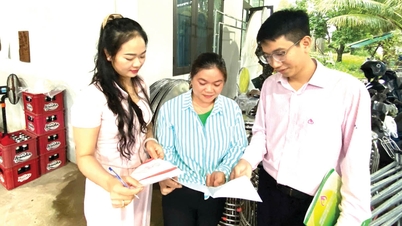












Comment (0)